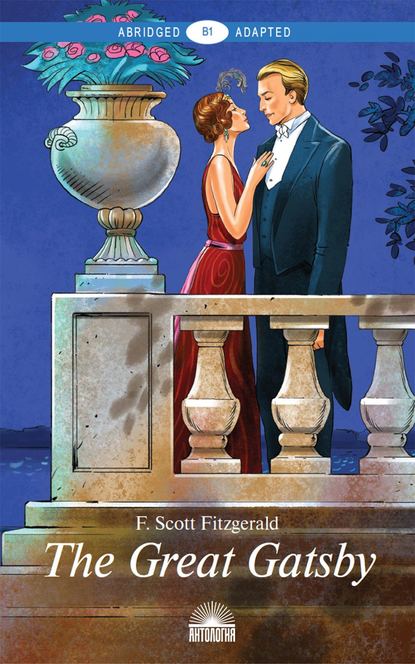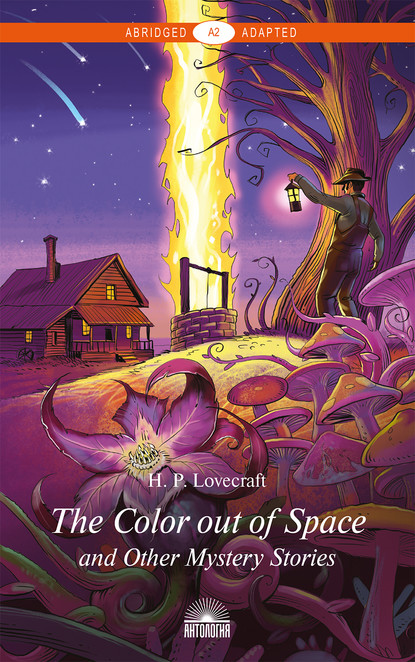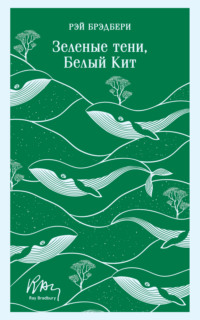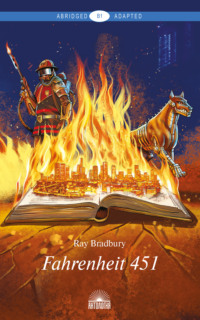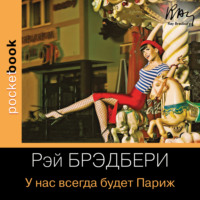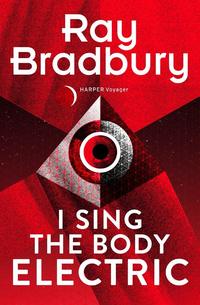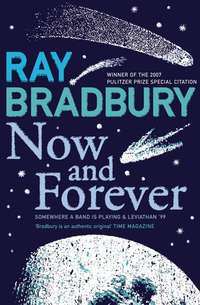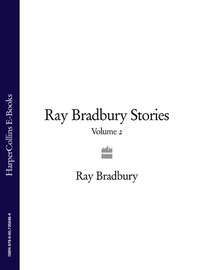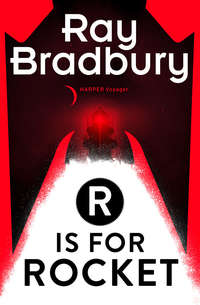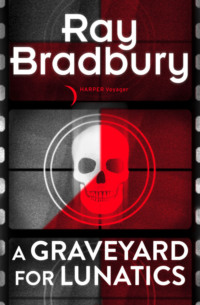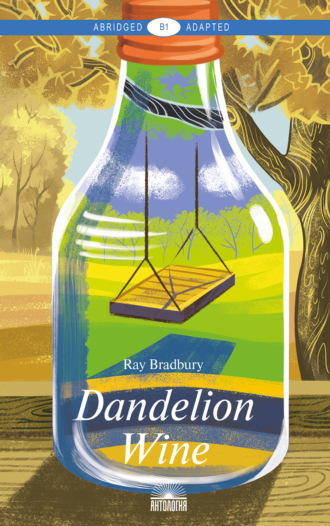
Полная версия
Dandelion Wine. Вино из одуванчиков. Книга для чтения на английском языке. Уровень В1
This mystery of man seizing from the land and the land seizing back, year after year, attracted Douglas. The towns never really won, they merely existed in calm danger, fully equipped with lawn mower, bug spray and hedge shears, swimming steadily as long as civilization said to swim, but each house ready to sink in green tides, buried forever, when the last man passed away and his equipment turned to flakes of rust.
The town. The wilderness. The houses. The ravine. Douglas looked around. But how to relate the two, make sense of the interchange when…
“Doug… come on… Doug…” The running boys vanished.
The first ritual of summer, the dandelion picking, the starting of the wine, was over. Now the second ritual waited for him to make the motions, but he stood very still.
“I’m alive,” thought Douglas. “But they’re more alive than me. How come?” He looked at his motionless feet and knew the answer…
That evening, on his way home from the show with his mother and father and his brother Tom, Douglas saw the tennis shoes in the bright store window. He looked quickly away, but his feet felt as if he was rushing, and the shop awnings flapped their canvas wings overhead because of the wind made by his body running. His mother and father and brother walked quietly on both sides of him.
“It was a nice movie,” said Mother.
Douglas murmured, “It was…”
It was June and long past time for buying the special shoes that were quiet as a summer rain falling on the walks. June and the earth full of life and everything everywhere in motion. The grass was still pouring in from the country, surrounding the sidewalks and the houses. Any moment the town would go down and leave not a stir in the clover and weeds. And here Douglas stood on the dead cement and the red-brick streets, hardly able to move.
“Dad! Back there in that window, those Cream-Sponge Para Litefoot Shoes…”
His father didn’t even turn. “Can you tell me why you need a new pair of sneakers?”
“Well…”
It was because they felt the way it feels every summer when you take off your shoes for the first time and run in the grass.
“Dad,” said Douglas, “it’s hard to explain.”
Somehow the people who made tennis shoes knew what boys needed and wanted. Whatever it was, it was in the shoes, and it was summer.
Douglas tried to get all this in words.
“Yes,” said Father, “but what’s wrong with last year’s sneakers?”
Douglas felt sorry for boys who lived in California where they wore tennis shoes all year and never knew what it was to get winter off your feet, take off the leather shoes all full of snow and rain and run barefoot for a day and then lace on the first new tennis shoes of the season, which was better than barefoot. The magic was always in the new pair of shoes. The magic might die by the first of September, but late June was still full of magic, and shoes like these could jump you over trees and rivers and houses. And if you wanted, they could jump you over fences and sidewalks and dogs.
“Don’t you see?” said Douglas. “I just can’t use last year’s pair.”
For last year’s pair were dead inside. They had been fine last year when he had started to wear them. But by the end of summer, every year, you always knew, you couldn’t really jump over rivers and trees and houses in them, and they were dead. But this was a new summer, and he felt that with this new pair of shoes, he could do anything, anything at all.
“Save your money,” said Dad. “In five or six weeks —”
“Summer’ll be over!”
That night Douglas lay watching his feet in the moonlight, free of the heavy winter shoes, the big lumps of winter fallen away from them.
“Reasons. I’ve got to think of reasons for the shoes.”
Well, first of all, the hills around town were full of friends. They were frightening away cows, playing barometer to the atmospheric changes, taking sun from dawn to sunset. To catch those friends, you must run much faster than foxes or squirrels. As for the town, it was full of enemies who got irritable with heat and remembered every winter argument and insult. Find friends, dump enemies! That was the Cream-Sponge Para Litefoot motto. Does the world run too fast? Want to catch up? Want to be agile, stay agile? Litefoot, then! Litefoot!”
He shook his coin bank and heard the faint small tinkling, the light weight of money there.
Whatever you want, he thought, you got to make your own way. During the night now, let’s find that path through the forest…
Downtown, the store lights went out. In his dreams he heard a rabbit running in the deep warm grass.
Old Mr. Sanderson moved through his shoe store as the owner of a pet shop must move through his shop touching each animal in passing. Mr. Sanderson brushed his hands over the shoes in the window, and some of them were like cats to him and some were like dogs; he touched each pair with care, adjusting laces, fixing tongues. Then he stopped in the center of the carpet and looked around, nodding.
There was a sound of growing thunder.
One moment, the door to Sanderson’s Shoe Emporium was empty. The next, Douglas Spaulding stood there, staring down at his leather shoes as if these heavy things could not be pulled up out of the cement. The thunder had stopped when his shoes stopped. Then, looking only at the money in his cupped hand, Douglas moved out of the bright sunlight of Saturday noon. He started to put nickels, dimes, and quarters on the counter and worried if the next move carried him out into sun or deep into shadow. “Don’t say a word!” said Mr. Sanderson.
Douglas froze.
“First, I know just what you want to buy,” said Mr. Sanderson. “Second, I see you every afternoon at my window; you think I don’t see? You’re wrong. Third, to give it its full name, you want the Royal Crown Cream-Sponge Para Litefoot Tennis Shoes: ‘LIKE MENTHOL ON YOUR FEET!’ Fourth, you want credit.”
“No!” cried Douglas. He was breathing hard, as if he’d run all night in his dreams. “I got something better than credit to offer!” Then he asked Mr. Sanderson when he himself had worn a pair of Litefoot sneakers.
Mr. Sanderson’s face darkened. “Oh, ten, twenty, say, thirty years ago. Why..?”
“Mr. Sanderson, don’t you think you owe it to your customers, sir, to at least try the tennis shoes you sell, for just one minute, so you know how they feel? People forget if they don’t keep testing things. United Cigar Store man smokes cigars, doesn’t he? Candy-store man tastes his own stuff, I think. So…”
“You can see,” said the old man, “I’m wearing shoes.”
“But not sneakers, sir! How are you going to sell sneakers if you cannot praise them and how are you going to praise them if you don’t know them?”
“Well…,” said Mr. Sanderson.
“Mr. Sanderson,” said Douglas, “you sell me something and I’ll sell you something just as valuable.”
The old man sighed but agreed to put on a pair of the sneakers.
“How do they feel?” asked the boy when Mr. Sanderson stood up.
“They feel fine.” He started to sit down.
“Please!” Douglas held out his hand. “Mr. Sanderson, now could you kind of rock back and forth a little, bounce kind of, while I tell you the rest? It’s this: I give you my money, you give me the shoes, I owe you a dollar. But, Mr. Sanderson, as soon as I get those shoes on, you know what happens?”
“What?”
“Bang! I deliver your packages, pick up packages, bring you coffee, dump your trash, run to the post office, telegraph office, library! You’ll see me in and out, in and out, every minute. Feel those shoes, Mr. Sanderson, feel how fast they’d take me? Feel all the running inside? Feel how they don’t like you just standing there? Feel how quickly I’ll be doing all those things for you? You stay in the nice cool store while I’m jumping all around town! But it’s not me really, it’s the shoes. They’re going like mad down alleys, cutting corners, and back!”
The flow of the words carried Mr. Sanderson, and he began to sink deep in the shoes, to flex his toes, test his ankles. He rocked softly, secretly, back and forth in a small breeze from the open door. The tennis shoes silently sank themselves deep in the carpet, as in a jungle grass. Emotions ran over his face as if many colored lights had been switched on and off. Slowly he rocked himself to a halt, and the boy stopped talking, and they stood there looking at each other in a wonderful and natural silence.
“Boy,” said the old man at last, “in five years, how would you like a job selling shoes in this Emporium?”
“Gosh, thanks, Mr. Sanderson, but I don’t know what I’m going to be yet.”
“Anything you want to be, son,” said the old man, “you’ll be. No one will ever stop you.”
The old man walked lightly across the store to the wall of shoe boxes, came back with the tennis shoes for the boy, and wrote up a list on some paper while the boy was lacing the shoes on his feet and then standing there, waiting.
The old man gave him his list. “A dozen things you got to do for me this afternoon. Finish them, we’re even, and you’re fired.”
“Thanks, Mr. Sanderson!” Douglas jumped away.
“Stop!” cried the old man.
Douglas stopped and turned.
“How do they feel?” Mr. Sanderson asked.
The boy looked down at his feet deep in the rivers, in the fields of wheat, in the wind that already was rushing him out of the town. He looked up at the old man.His eyes were burning, but no sound came out of his mouth.
“Antelopes?” said the old man, looking from the boy’s face to his shoes. “Gazelles?”
The boy thought about it and nodded a quick nod. Almost immediately he vanished. The door stood empty. The sound of the tennis shoes faded in the jungle heat.
Mr. Sanderson stood in the sun-lit up door, listening. From a long time ago, when he dreamed as a boy, he remembered the sound. Beautiful creatures leaping under the sky, gone through bushes, under trees, away, and only the soft echo of their running left behind.
“Antelopes,” said Mr. Sanderson. “Gazelles.”
He picked up the boy’s winter shoes, left behind, heavy with forgotten rains and long-melted snows. Moving out of the hot sun, walking softly, lightly, slowly, he turned back toward civilization…
Tom’s statistics gave Douglas a fresh idea. He decided to write down all the things they usually did every summer in one part of his yellow nickel notebook, under the title RITES AND CEREMONIES, and in the other part he was going to register things they did for the first time. The title of that part was DISCOVERIES AND REVELATIONS.
“Like eating olives?” Tom asked.
“More important than that. Like finding out maybe that Grandpa and Dad don’t know everything in the world.”
“They know every dam’ thing there is to know, and don’t you forget it!”
“Tom, don’t argue, I’ve already written it down under Discoveries and Revelations. They don’t know everything. But it’s no crime. That I discovered, too.”
“What other new crazy stuff you got in there?”
“I’m alive.”
“Heck, that’s old!”
“Thinking about it, noticing it, is new. You do things and don’t watch. Then all of a sudden you look and see what you’re doing and it’s the first time, really. In other words, you do an old familiar thing, like bottling dandelion wine, and you put that under RITES AND CEREMONIES. And then you think about it, and what you think, crazy or not, you put under DISCOVERIES AND REVELATIONS. Here’s what I got on the wine: Every time you bottle it, you got a whole lump of 1928 put away, safe. How do you like that, Tom?”
“Can’t say I got it at all.”
“Well, here’s another. Under CEREMONIES I got: First argument and licking of Summer 1928 by Dad, morning of June 24th. Under REVELATIONS I got: The reason why grown-ups and kids fight is because they belong to separate races. Look at them, different from us. Look at us, different from them. Separate races, and never the two shall meet.”
“Doug, you hit it, you hit it! That’s right! That’s exactly why we don’t get along with Mom or Dad. Trouble, trouble, from sunrise to supper! Boy, you’re a genius!”
“So, when you see something done over and over, tell me. Think about it, and tell me that.”
“I got a statistic for you right now. Take your pencil, Doug. There are five billion trees in the world. I looked it up. Under every tree is a shadow, right? So, then, what makes night? I’ll tell you: shadows crawling out from under five billion trees! If only we could find a way to keep those dam five billion shadows under those trees, we could stay up half the night, Doug, because there’d be no night! There you are; something old, something new.”
“That’s old and new, all right.” Douglas licked his favorite yellow pencil. “Say it again.”
“Shadows are under five billion trees…”
Summer was full of rituals, each with its natural time and place. The ritual of lemonade or ice-tea making, the ritual of wine, shoes, or no shoes, and at last, the ritual of the front-porch swing.
On the third day of summer in the late afternoon Grandfather came out from the front door and looked at the two empty rings in the ceiling of the porch. He moved to the geranium-pot-lined rail, wet his finger to test the wind, and took off his jacket to see how it felt in shirt sleeves in the evening. He answered the salutes of other captains on yet other flowered porches, out themselves to see if it was warm enough, deaf to their wives chattering behind black porch screens.
“All right, Douglas, let’s set it up.”
They found the swing chair in the garage, dusted it, brought it to the porch, and Grandpa chained it to the porch-ceiling rings. The swing was, in fact, the most important thing for the quiet summer-night festivals.
Douglas, being lighter, was first to sit in the swing. Then, after a moment, Grandfather cautiously settled his pontifical weight beside the boy. Thus they sat, smiling at each other, nodding, as they swung silently back and forth, back and forth.
Ten minutes later Grandma appeared with water buckets and brooms to wash down and sweep off the porch. Other chairs, rockers and straight-backs, were brought from the house.
“Always like to start sitting early in the season,” said Grandpa, “before the mosquitoes thicken.”
About seven o’clock various sounds could be heard from the house: the chairs scraping back from the tables, someone experimenting with a yellow-toothed piano, matches being struck, the first dishes bubbling in the suds and tinkling on the wall racks, somewhere, faintly, a phonograph playing. And then at house after house on the twilight streets, under the huge oaks and elms, on shady porches, people would begin to appear.
Uncle Bert, perhaps Grandfather, then Father, and some of the cousins – the men all would come out first into the warm evening, blowing smoke, leaving the women’s voices behind, in the kitchen, to set their universe in order. Then the first male voices would be heard under the porch roof, their feet up, the boys sat on the worn steps or wooden rails where sometime during the evening something, a boy or a geranium pot, would fall off.
At last, Grandma, Great-grandma, and Mother would appear, and the men would move, and offer seats. The women carried folded newspapers, bamboo whisks, or perfumed kerchiefs, to fan their faces with, as they talked.
Sitting on the summer-night porch was so good, so easy and so reassuring. These were rituals that were right and lasting; the lighting of pipes, the pale hands that moved knitting needles in the dimness, the eating of ice cream, the coming and going of all the people. For at some time or other during the evening, everyone visited here: the neighbors down the street or across the street; Miss Fern and Miss Roberta would drive by in their electric green machine, give Tom or Douglas a ride around the block and then come up and sit down and fan away the fever in their cheeks; or Mr. Jonas, the junkman, would leave his horse and wagon in the alley and come up the steps looking as fresh as if his talk had never been said before, and somehow it never had. And last of all, the children, who had been off playing a last hide-and-seek or kick-the-can, breathing hard, glowing, would sickle quietly back like boomerangs along the soundless lawn, to sink beneath the talking talking talking of the porch voices which would weigh and gentle them down…
Douglas loved to lie there quietly, listening to those voices weaving the dark together. The grown-ups had forgotten he was there, so still, so quietly he lay, noting the plans they were making for his and their own futures. And the voices drifted in moonlit clouds of cigarette smoke while the moths, like late apple-blossoms came alive, tapped lightly about the far street lights, and the voices moved on into the coming years…
In front of the United Cigar Store this evening the men gathered and talked about the destruction that threatened human kind through all modern machines and inventions.Their sepulchral speeches distressed Leo Auffmann, the town jeweler, who, widening his large liquid-dark eyes, at last threw up his childlike hands and cried out in dismay.
“Stop! In God’s name, stop this funereal talk!”
“Lee, how right you are,” said Grandfather Spaulding, passing on his nightly stroll with his grandsons Douglas and Tom. “But, Lee, only you can shut these doom-talkers up. Invent something that will make the future brighter, more comforting and joyful. You’ve invented bicycles, repaired the penny slot-machines in the playing arcade, been our town movie projectionist, haven’t you?”
“Sure,” said Douglas. “Invent us a happiness machine!”
The men laughed.
“Don’t laugh,” said Leo Auffmann. “How have we used machines so far? To make people cry! Yes! Every time man and the machine look like they will get on all right – boom! Someone adds a cog, and airplanes drop bombs on us, cars run us off cliffs. So is the boy wrong to ask? No! No…”
He went to the curb to his bicycle and touched it as if it were an animal.
“What can I lose?” he murmured. “A little skin off my fingers, a few pounds of metal, some sleep? I’ll do it!”
“Lee,” said Grandfather, “we didn’t mean —”
But Leo Auffmann was gone, pedaling off through the warm summer evening, his voice drifting back. “…I’ll do it…”
“You know,” said Tom, in awe, “I bet he will.”
When seeing him riding along the brick streets of evening, you understood that Leo Auffmann enjoyed everything around him: the rustle of the hot grass when the wind blew like a furnace, or the singing of the electric power lines in the wind.
Now, pedaling along, he thought about the shocks of life – what were they? Getting born, growing up, growing old, dying. Not much to do about the first. But – the other three?
In his head now, golden spokes of the spinning wheels of his Happiness Machine sparkled. A machine, now, to help boys grow brave and strong, girls change from an ugly duckling to a white swan. And in the late years of your life, as you lie abed at nights, and your heartbeat is increasing to a billion, his invention must let a man take the autumn of his life easy.
When he arrived home, his six children, Saul, Marshall, Joseph, Rebecca, Ruth, Naomi, all ages from five to fifteen, rushed across the lawn to take his bike. They hugged him all at once.
“We waited. We got ice cream!”
Moving toward the porch, he could feel his wife’s smile there in the dark.
Five minutes the family ate ice cream in comfortable silence, then he said, “Lena? What would you think if I tried to invent a Happiness Machine?”
“Is something wrong?” she asked quickly.
Before Grandfather and the boys could reach home, Charlie Woodman and John Huff and some other boys rushed by like meteors. Their gravity was so huge they pulled Douglas away from Grandfather and Tom and took him off toward the ravine.
“Don’t get lost, son!”
“I won’t… I won’t…”
The boys disappeared into darkness.
Tom and Grandfather walked the rest of the way in silence, except when they turned in at home and Tom said, “boy, a Happiness Machine – wow!”
The courthouse clock struck eight.
The courthouse clock struck nine and it was really night on this small street in a small town in a big state on a large continent on a planet earth hurtling down the pit of space toward nowhere or somewhere, and Tom was feeling every mile of the long drop. He sat by the front-door screen looking out at that rushing blackness that looked very innocent as if it was holding still. Only when you closed your eyes and lay down could you feel the world spinning under your bed.
There was a smell of rain. Mother was ironing and sprinkling water from a corked ketchup bottle over the crackling dry clothes behind Tom.
One store was still open about a block away – Mrs. Singer’s.
Finally, just before it was time for Mrs. Singer to close her store, Mother relented and told Tom to run to Mrs. Singer’s and buy a pint of ice cream.
He took the money and ran barefooted over the warm evening pavement. He crossed the street and found Mrs. Singer moving about her store, singing Yiddish melodies.
“Pint ice cream?” she said. “Chocolate on top? Yes!”
He gave the money, received the chill, icy pack, and rubbing it across his brow and cheek, laughing, rushed homeward. Behind him the lights of the lonely little store went out and there was only a street light on the corner, and the whole city seemed to be going to sleep.
Mother was still ironing when he opened the screen door. She looked hot and irritated but she smiled just the same.
“When will Dad be home from his meeting?” he asked.
“About eleven or eleven-thirty,” Mother said. She took the ice cream to the kitchen and put two portions away, for Douglas and Father when they come.
They sat enjoying the ice cream. The deep quiet summer night was around them, all around their small house on the small street. Mother sat in the armchair by the phonograph, eating her dessert and saying, “It was a hot day. Earth soaks up all the heat and lets it out at night. It’ll be soggy sleeping.”
They both sat listening to the night. The silence was complete because the radio needed a new battery, and they had played all the records on the phonograph to exhaustion. So Tom just sat on the floor and looked out into the darkness, pressing his nose against the screen.
“I wonder where Doug is. It’s almost nine-thirty.”
“He’ll be here,” Tom said, knowing very well that Douglas would be.
Mother went to the kitchen to wash the dishes, and he followed her. Then, silently, they went to the living room, removed the couch cushions and, together, opened it and extended it down into the double bed it secretly was. Mother made the bed, plumping up pillows for their heads. But she stopped him when he started unbuttoning his shirt saying, “Wait awhile, Tom.”
“Why?”
“Because I say so.”
“You look funny, Mom.”
Mom went to the door and called, “Douglas, Douglas, oh Doug! Douglasssssss!” over and over. There was no answer. She stepped out into the night, walked under the lilac bush, and called again.
Silence.
She called twice more. Tom sat in the room. Any moment now, Douglas would answer from down the long narrow street, “All right, Mom! All right, Mother! Hey!”
But he didn’t answer. Mother came back and said, “Come on, Tom. We’ll take a walk.”
“Where to?”
“Just down the block. Come on.”
They walked down the dark street. The crickets were sounding louder against the darkening dark. They reached a corner, turned, and walked toward the West Ravine.
There was such a complete lack of life, light, and activity. Here and there, in the distance, dim squares of light glowed where people were still up. But most of the houses, darkened, were sleeping already, and there were a few darkhouses where the occupants still sat talking low night talk on their front porches.
“I wish your father was home,” said Mother. Her large hand squeezed around his small one. “Just wait till I get that boy. The Lonely One’s around again. Killing people. No one’s safe anymore. You never know when the Lonely One’ll turn up or where. So help me, when Doug gets home I’ll give him a sound thrashing.”
Now they had walked another block and were standing by the black silhouette of the German Baptist Church. In back of the church, a hundred yards away, the ravine began. He could smell it. It had a dark-sewer, rotten-foliage odor. The wide ravine cut and twisted across town – a jungle by day, a place to let alone at night, Mother often declared.


